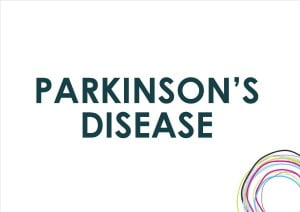The EU Joint Programme – Neurodegenerative Disease Research (JPND) initiative[1] has launched its updated global Research and Innovation Strategy (RIS), to provide a unified framework for the support of world class research into neurodegenerative diseases.
Neurodegenerative diseases are one of the world’s leading medical and societal challenges and there are now expected to be 50 million people worldwide suffering from Alzheimer’s disease and related disorders. Globally, these numbers show no signs of abating, and it is estimated that by 2050 in Europe alone, the total direct and informal care costs for Alzheimer’s and Parkinson’s disease will exceed €350 billion annually.[2]
JPND is the first and largest collaborative research initiative established to tackle the growing challenge posed by neurodegenerative diseases. JPND’s ultimate goal is to accelerate the discovery of a cure and to enable early diagnosis for early personalised treatments. In the meantime, it is essential to implement solutions that can alleviate, albeit partially, the plight of families and the economic burden brought about by the increasing prevalence of this disease in our ageing populations. Thus besides basic research, the scientific endeavour concerns also translational and clinical, and social care and health services researches.
Today’s release of the Research and Innovation Strategy (RIS) updates the common vision of 30 JPND member countries. It renews the strategy that was first published in 2012, to tackle the major societal challenge of neurodegenerative diseases.
JPND speaks to the following individuals about the RIS.
Dr Barbara Kerstiëns, Head of the unit responsible for Non-Communicable Diseases and the Challenge of Healthy Ageing in the European Commissions’ Directorate-General for Research & Innovation says: “The European Commission is keenly aware that Neurodegenerative Diseases is one of the leading medical and societal challenges of our time. It recognises that JPND has been instrumental in addressing these by aligning and coordinating national efforts among Member States and other countries, reducing fragmentation and duplication in research and overall increasing the effectiveness and impact of research in this field.
JPND’s ambitious new RIS invites multidisciplinary and cross-sectoral collaboration as well as engagement with patients, their families and carers. Its five scientific priorities cover the full spectrum of unmet needs – the knowledge gap, the prevention gap, the early diagnosis and disease management gap, as well as the growing socio-economic challenges of caring for and assisting people faced with those diseases. The strategy takes important factors relating to ND care into account, such as comorbidities, sex and gender differences, the role of ageing and the complex ethical issues. Moreover, the RIS recommendations are in line with the Commission’s priorities in fostering innovative partnerships, taking advantage of the latest advances in digital technologies, including artificial intelligence, promoting an Open Access approach and translating research findings into evidenced-based public health policies and, ultimately, better health and social care.”
Professor Philippe Amouyel, University of Lille (France) and Chair of the JPND Management Board says: “The challenge is to tackle neurodegeneration, and in particular, Alzheimer’s disease through an unprecedented collaboration at the European level and beyond. The ultimate goal is to facilitate the cooperation of researchers, to reduce fragmentation, to prevent unnecessary doubling of efforts and to pool and organise resources on a voluntary basis for the benefit of the populations. Our RIS forms the basis for current and future JPND initiatives, as well as a fundamental reference point for the national and organisational strategic plans. It provides a global common framework for future investment that addresses how countries can effectively improve prevention, diagnosis, treatment and patient care.”
JPND Scientific Advisory Board Chair, Professor Thomas Gasser says: “Since the publication of our first RIS in 2012, there have been major advances, both scientific and technological, that have shaped the renewed RIS. Data science, including artificial intelligence-driven methods of data analyses, has transformed many research areas, and this is now reflected in the updated Strategy. Another important issue reflected in the renewed Strategy is the increasing awareness that the inclusion of factors like economic and cultural differences, gender issues and public and patient involvement must clearly play a more prominent role.” Click here for JPND’s full interview with Prof Gasser.
Professor Mogens Hørder, JPND Management Board Member says: “Since the 2012 research strategy, there has been an increased alignment of goals and methodologies being built up among research institutions of JPND members. The renewed RIS sees the participation of important players outside of Europe in JPND, which forms a valuable basis for the role of JPND in the global investment in neurodegenerative disease research.”
For JPND Executive Board member Dr Jacqueline Hoogendam, “the value of collaborative research should not be underestimated.” She says: “With the common vision adopted by the 30 JPND member countries, JPND enables neurodegenerative disease research in the most pressing areas at a global level, with efficient use of limited resources. In bringing together researchers from different countries whose collaborations extend beyond their joint research activities, JPND contributes to the development of the global community of neurodegenerative disease researchers.”
JPND is committed to aligning and building upon national programmes to increase impact and effectiveness of research and to identify common goals that would benefit from joint action.
JPND has identified a number of thematic scientific priorities for future research:
- The origins and progression of neurodegenerative diseases
- Disease mechanisms and models
- Diagnosis, prognosis and disease definitions
- Developing therapies, preventive strategies and interventions
- Health and social care
JPND is working to implement the above goals through:
- Building supportive infrastructure and platforms via harmonisation of data and materials and promotion of an open access approach to the sharing of data and resources
- Partnering with industry and healthcare providers and promoting innovation within a multi-partner international funding framework
- Developing greater interaction with regulators to integrate patient needs
- Linking worldwide research efforts in neurodegenerative disease research
- Utilising resources and infrastructure outside of Europe and better connecting global patient public involvement (PPI)
- Building capacity through strengthening certain neurodegenerative disease research areas and establishing networks across and between disciplines and researchers
- Developing an evidence-led educational approach to embed a research culture across the full spectrum of health, social and palliative care
- Strengthening the connection to policy makers
- Ensuring effective communication of the research agenda and engaging with a wide range of sectors and stakeholders
JPND receives support from the European Commission.
To download a full copy of the Research and Innovation Strategy, click here.
To download an Executive Summary of the Research and Innovation Strategy, click here.
For more information about the 2019 Research and Innovation Strategy, click here.
For the full interview with JPND’s Scientific Advisory Board Chair Thomas Gasser about the Research and Innovation Strategy, click here.
[1] Joint Programming is a collaborative approach supported by the European Commission in which countries define a common vision and a strategic research agenda, in order to address major societal challenges which are beyond the scale of any national research programme. The Joint Programme on Neurodegenerative Disease Research (JPND) was established as the pilot for this new type of coordinated approach to research.
[2] Maresova et al.,Alzheimer’s and Parkinson’s Diseases: Expected Economic Impact on Europe-A Call for a Uniform European Strategy, 2016, Journal of Alzheimer’s Disease, 54(3):1123-1133.


 Freezing of gait (FoG) is a disabling symptom of Parkinson’s Disease, characterised by patients becoming stuck while walking and unable to move forward. It is well-known to lead to falls and lower quality of life, making it an important target for treatment.
Freezing of gait (FoG) is a disabling symptom of Parkinson’s Disease, characterised by patients becoming stuck while walking and unable to move forward. It is well-known to lead to falls and lower quality of life, making it an important target for treatment.